Bishop of Vitoria: “The Church is unconditionally in the most concrete solutions to the fight against human trafficking”
Interview with the Bishop of Vitoria, Monsignor Juan Carlos Elizalde
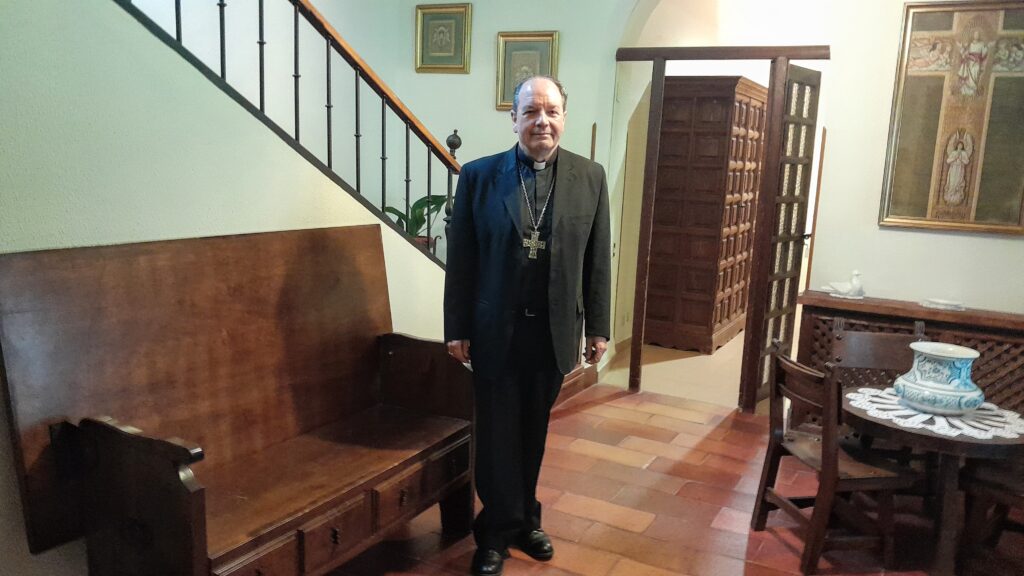
Monsignor Juan Carlos Elizalde is the bishop of the Basque diocese of Vitoria. He also serves as president of the Episcopal Subcommittee on Migration and Human Mobility of the Spanish Episcopal Conference, which includes prevention actions against Human Trafficking and whose day of reflection and prayer was held last Friday. In addition to this matter, he referred to the training in the seminars, as well as the upcoming election of the president of the EEC and the so-called amnesty law, promoted by the Spanish government. Meanwhile, we investigate the reasons for his permanent smile, an attitude very much his, which Pope Francis himself highlighted as that of the “joyful bishop.”
Days ago, the Church called for a heartfelt day of prayer against human trafficking… What should citizens know about this social scourge?
Human trafficking is the slavery of the 21st century, which affects the most marginalized, worst treated, and most invisible people, such as women and girls through sexual and labor exploitation.
Who is behind? Sometimes it seems to be covered up or even tolerated…
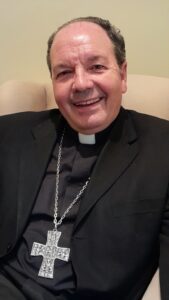 They are networks and mafias to manipulate people and exploit them commercially, given that, due to extreme needs, people want to migrate in search of a better life and they fall into these networks and are mistreated and enslaved. Therefore, we would have to know what profile of people the victims are, how to detect them and help them.
They are networks and mafias to manipulate people and exploit them commercially, given that, due to extreme needs, people want to migrate in search of a better life and they fall into these networks and are mistreated and enslaved. Therefore, we would have to know what profile of people the victims are, how to detect them and help them.
There is talk of labor trafficking but also sexual trafficking… How do they deceive them?
They are people who can promise a lot of income in exchange for nothing. Therefore, when they come from other continents, whether they are girls or women with job promises that may be false, it is essential to detect some symptoms; for example, that they do not have documents, that their documentation has been withheld, that they are paying a tremendous debt or that their families are suffering threats there. These are all symptoms, those of labor and sexual victims. It is essential that people know this, so that they can detect and intervene.
Do the wars that are taking place in the world make this worse?
Of course, hasty escapes from countries of origin, which are at war or where there is persecution, etc., are an ideal breeding ground for mafias, because in this exodus trafficking is made invisible and unfortunately we are seeing it in the last wars
Turning to another topic, we have seen that in recent weeks the Pope has been interested in the development of seminaries in Spain and has given some guidelines. For you, what is the balance of what has been done and what can be improved in this regard?
There is a very great interest on the part of the Holy See to promote the priestly vocation in optimal circumstances, with good training and with a wealth of quality in coexistence. And that, with an excessive number of very small seminars, training is not impoverished. Basically, the entire Church wants that and the Pope’s help is along those lines with the seminaries in Spain.
It seems numbers are always a challenge…
What it is about is that the diocesan or interdiocesan seminaries have a sufficient number of seminarians and receive good, quality training, guaranteed by their leaders, by their trainers, by the professors of the theology faculties. Of course, it is almost impossible in small dioceses with very few seminarians, which is why we are talking about an interdiocesan map of seminaries in Spain, with due adaptation to the specific conditions of the ecclesiastical provinces, the regions and the differentiation that exists in Spain.
In these days the Pope has intervened to speak to the clergy, even the prefect of the Dicastery for the Clergy has done the same within an international congress, emphasizing what is intrinsic to the priest, such as identifying with Christ, serving the others… Why is this connection sometimes lost between priests and their substantial mission?
Given that the work of the priest has increased so much, the horizon is so huge, vocations have decreased and the age of the clergy is increasing, it is logical that sometimes pastoral work impedes the priest’s self-care, his spiritual life, their priestly fraternity or permanent updating studies. It is logical that the Pope comes out in defense of quality ongoing formation, which helps to continue nurturing the priestly vocation in optimal conditions.
They have also talked about accompaniment, because sometimes there is a certain disillusionment with such a secularized society…
The conditions today are very aggressive. There is a need for resources that help offer priestly service in the best conditions. In that sense, personal accompaniment – which begins in the seminary, even before entering the seminary – is being encouraged to be something constant as a practice of the Christian life of maturation and also something necessary, for marriages, for priests, for consecrated life, for all the baptized.
There is talk of the need to return to a first announcement… How do you see this figure?
In the West it is very clear, because a pastoral care of maintenance locks us in our ghettos and in our parishes. And today, unfortunately, most of our society is alien, at least statistically, to the Christian proclamation and this cannot be taken for granted. The transmission of faith has been broken in families and schools. Therefore, from the Church, whether in the celebrations of a funeral, a baptism or the Sunday Eucharist, the first announcement is important. But also beyond parish borders. And there the priest, together with the laity, with couples, with consecrated life, has to coordinate this first announcement.
On the other hand, the world is still amazed at the high-profile cases of pedophiles… Has this been an oversight in the training or selection of candidates for the priesthood? Or are other causes already identified in order to prevent it?
The causes are very complex. The trivialization of sexuality is key, separating it from affectivity and the overstimulation of sexuality in society… Within the Church, we can talk about the subjectivation of criteria and the relativization of morality.
Does training also enter into the analysis?
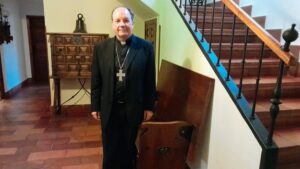 Of course. Also the training, and in that sense the prevention that is being sought today and the effort for transparency and greater emotional-sexual training, is appreciated. And it is a privileged opportunity to give the best formation in our seminaries and to our priests permanent formation.
Of course. Also the training, and in that sense the prevention that is being sought today and the effort for transparency and greater emotional-sexual training, is appreciated. And it is a privileged opportunity to give the best formation in our seminaries and to our priests permanent formation.
Returning to Spain, there is a process for the election of the new president of the Spanish Episcopal Conference… What should be the profile of who is going to preside over this body at the current time?
I believe that he must be a man of communion, of consensus, who, in a moment of ecclesial polarization, does not take us to incompatible extremes. With leadership and moral authority, may he be a rich, non-exclusive, dynamic and courageous proposal for the Christian faith in Spain.
At the societal level, the approval of a law that seeks amnesty for those who attacked democratic institutions and people has been debated… What should be the position of believers in Christ regarding this figure?
The topic cannot be treated as a taboo, as something impossible, that cannot be put on the table. We have examples on five continents of amnesties that have been granted after turbulent political moments, after wars, changes of governments, etc. Serious causes and fair conditions must be given. I believe that there are some basic principles that should be respected, such as equality before the law, the equal dignity of all citizens, the end that does not justify the means, etc. The future must also be taken into account, the possible reactions to this amnesty and then it is also necessary to determine what the specific content is and who is specifically affected by this amnesty.
You have mentioned synodality… Both the synod on synodality, as well as other decisions or teachings that come from the Pope, are received by some with a certain tension. Don’t you want to get into something new?
The Pope told us Spanish bishops that synodality is not about changing the doctrine, the identity, the mission, but rather the way we treat each other, of being in the Church, of relating, of collaborating with the laity, priests and consecrated life. . So in that sense, it is a new way of being and treating ourselves; new in the sense of refreshing the origins of the Church.
He has always tried to respond to the times…
There will have been moments of more darkness, but indeed, the Church of Vatican II is synodal and today the concrete landing in our society and in our dioceses has to be updated. There can be a prevention of some and others, because both the doctrine of synodality, and even the teaching of the Pope, always have the danger that they can be manipulated and from extremes the proposal that the Church makes can be disfigured.
You have to be attentive…
Well, these are moments of polarization, indeed of nervousness, and there are also groups that take advantage of this breeding ground to extreme their positions. I believe that each statement of the Pope has its light, that it is the Holy Spirit that assists the Pope. And that, indeed, after the previous synods, that of the Family, of Youth, of Beloved Amazonia, together with all those proposals that the Pope makes, the conclusions to which it gives rise are luminous, enriching, in continuity with tradition Christian.
Challenging too…
Yes, they are challenging, in that they try to respond to the needs of today and of all humanity, but without disconnecting from the Christian tradition and the sacramental and doctrinal identity of the Church.
How is your diocese, Vitoria?
We are experiencing the synod as a blessing. In fact, both the presbytery and the laity, as well as the delegations and services of the diocese, are putting the fundamental issues on the table, we are discussing them with affection, after each one shows his opinion and opinion. I believe that we are trying to open ourselves more to the Holy Spirit, to think and see what the Lord has told me through the brothers and that the practical conclusions that we are drawing are of a certain novelty.
This leads them to new plans and projects…
In the communion of the Church, in the tradition of the Church, new problems are presented to us. I am happy at this moment, we are having vocations, we are gaining concreteness in the social sensitivity, which has always existed in Vitoria, such as actions for the poorest and the most vulnerable people. I am optimistic about the future.
There is an interesting phenomenon on this diocese and in others in Spain, which is the high number of priests who have migrated to local churches. What should the integration be like with the local clergy, of those who come to help?
Vitoria is a missionary diocese; Many priests throughout the last century and this one have exercised their ministry, especially in Latin America and Africa, there are still some… Now, other priests, whether due to studies or pastoral need, also come to help us. So we start from a learned experience, because we know what it is like to be welcomed in another country, in another Church. So, with due gratitude, we are qualified to welcome these priests. We are a church with a rich tradition, with shortcomings like the rest of the world, but integration is being progressive. There are always small conflicts, but without being able to generalize, since we have moved from prejudices to a more fluid and fraternal collaboration.
You always seem happy, smiling and animated… How can we live the “joy of the Gospel”, which Pope Francis tells us so much about and recommends?
Yes of course. The Pope says that “where Jesus is, joy is born and reborn.” The truth is that I live happy, because the presence of Jesus, of his Spirit, is more powerful than all the darkness, difficulties and conflicts that we have; but that’s common sense.
Any final issues you want to reflect on?
I forgot to say before, on the topic of vocations, that of course, it is a difficult time and that there is a suspicion of authoritarianism, of clericalism and that the issue of abuse casts a cloud of insecurity. But we are facing a moment of purification and like never before, we can descend to the evangelical roots of the priesthood to propose to our young people the priesthood as the Church conceives it, as it understands consecrated life, as a 24-hour volunteer service. Likewise, present, as the Church understands marriage, a sacrament of the presence of Jesus between the husband and wife. There has never been so much need, at least in our Europe and in the West, for the Christian commitment and proposal to shine where the Christian lives. These are not bad times, “you are the times,” said Saint Augustine.
Related
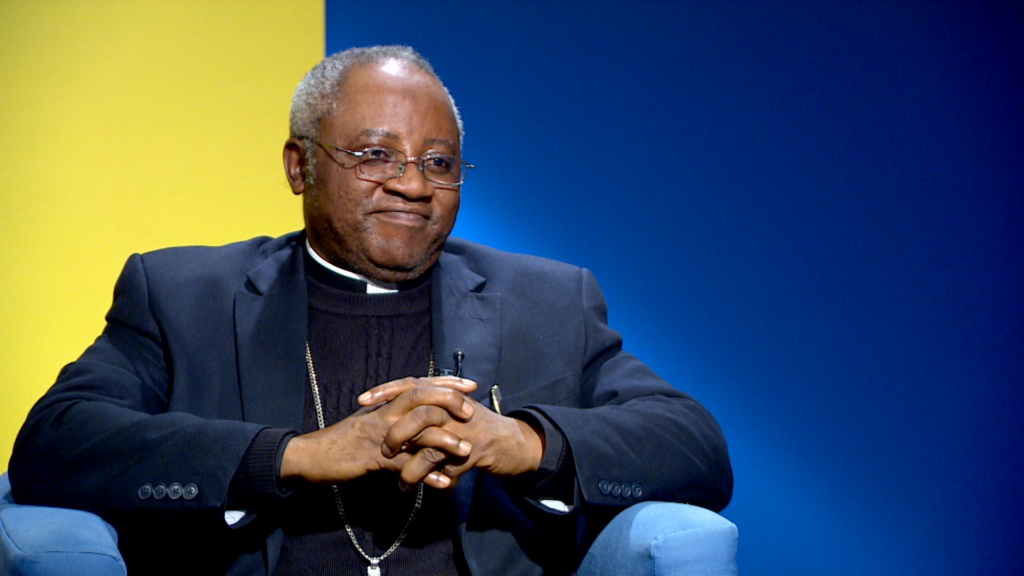
Despite hardships, Christianity is growing “astronomically” in northern Nigeria
Ayuda a la Iglesia Necesitada
10 April, 2025
3 min
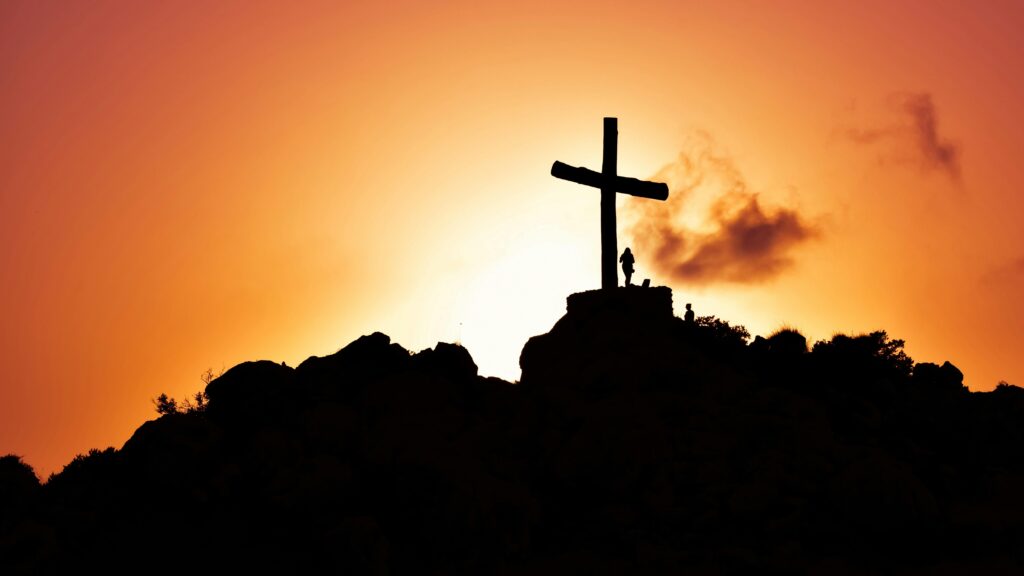
“Christianity, a Powerful Engine of Social Transformation”
Exaudi Staff
09 April, 2025
3 min
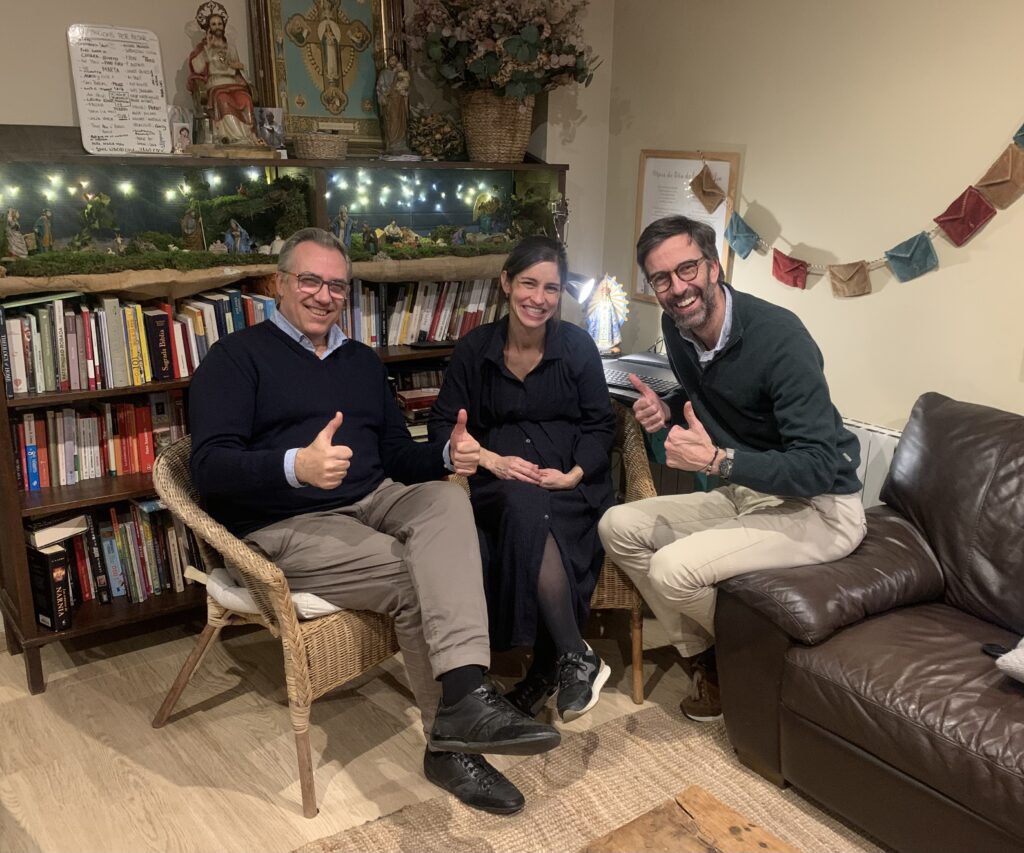
Let God be God
Albert Cortina
11 March, 2025
25 min
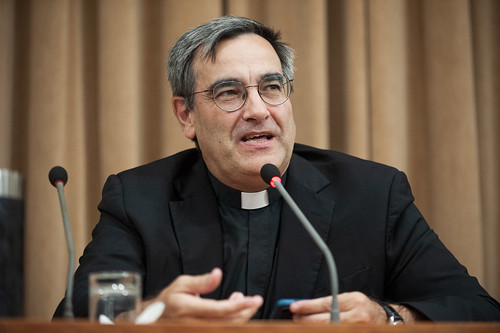
Fernando Puig, new rector of Santa Croce
Fundación CARF
19 February, 2025
6 min
 (EN)
(EN)
 (ES)
(ES)
 (IT)
(IT)

